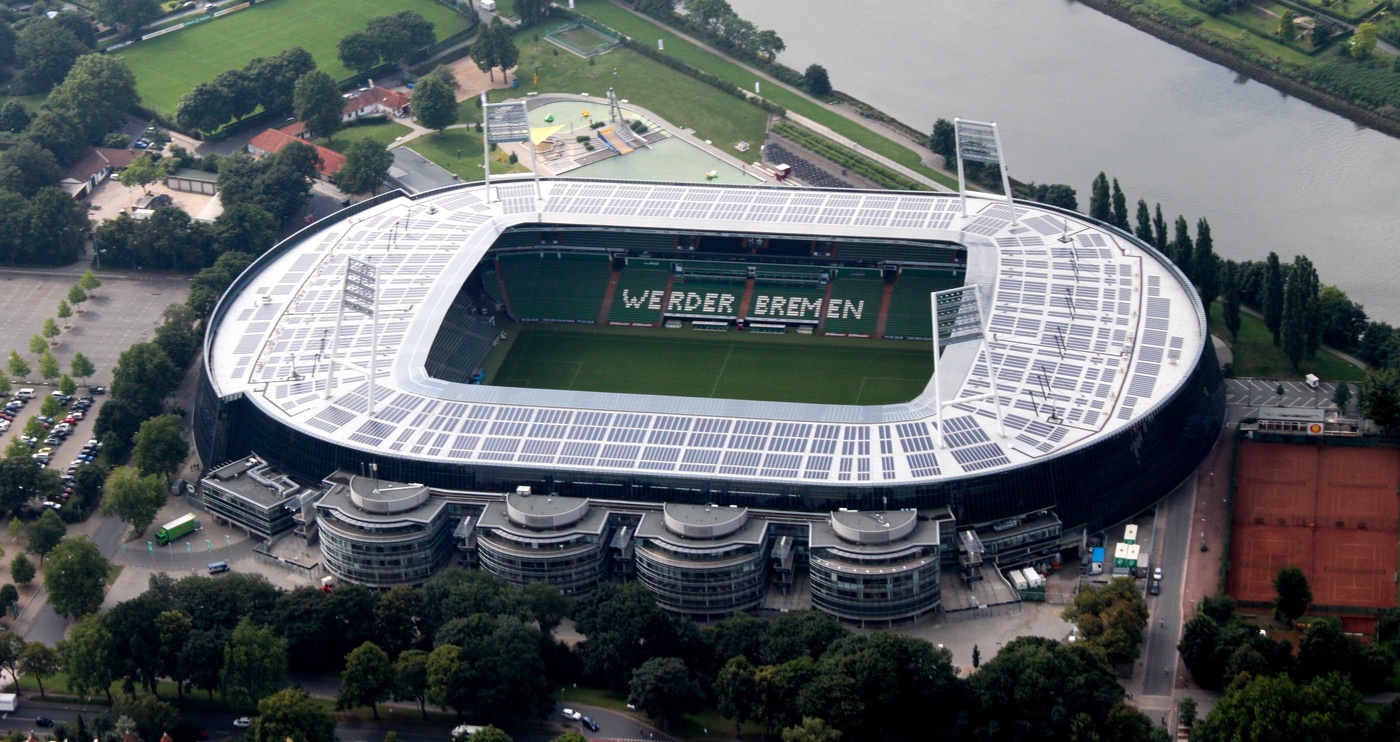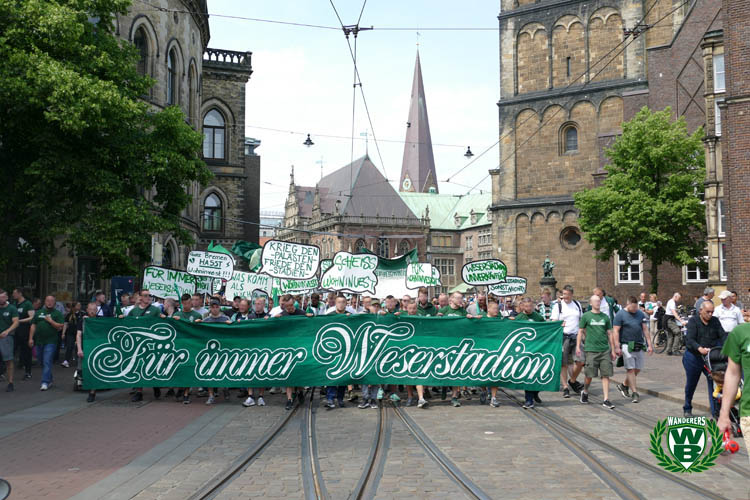Bremen: Ultras against Weserstadion name change
source: StadiumDB.com; author: michał
 After over 70 years Weserstadion will change its name. And the naming rights partner is both from another part of Germany and highly controversial. In effect fans took to the streets yesterday.
After over 70 years Weserstadion will change its name. And the naming rights partner is both from another part of Germany and highly controversial. In effect fans took to the streets yesterday.
Advertisement
Until recently Werder had a near-perfect deal. A naming rights deal was in place since 2007 but the name wasn't meddled with. Energy company EWE opted to pay €3 million annually in order to preserve the historical Weserstadion brand. But in 2018 the contract concluded and the sponsor didn't extend it.
It was clear Werder would negotiate with a new entity and supporters appealed for transparency in talks through their fan advisory board. Still, they were among the last ones to find out in the end. In late May it was announced that the new sponsor is agreed: Wohninvest. Its name would be added in front of Weserstadion for a duration of 10 years, worth app. €2.75 million annually.
Many supporters had an alergic reaction to the news. Not only were they left in the dark by their own club despite appeals for their voice being included, but also the new naming rights holder is highly controversial. Wohninvest is a company from a different part of Germany, not associated with Werder or the Bremen community traditionally. It's also accused of unfair practices like rent speculation.
In order to express their anger, several ultra groups joined forces and quickly organised a demonstration against the deal. Yesterday some 500-600 people marched through Bremen with a banner reading “Forever Weserstadion” on the front and numerous slogans on paperback. Further protests are expected.
Importantly, the naming rights will not benefit Werder Bremen, not directly. All money will go to the public-private stadium operator, a subsidiary of the city and football club. The intent is to use it to repay remainder of the major debt taken for 2008-2011 stadium reconstruction. It cost some €76.5 million despite initial estimates of just over €40 million.
Advertisement

 StadiumDB
StadiumDB ©
©  ©
©